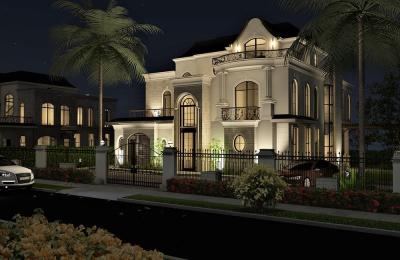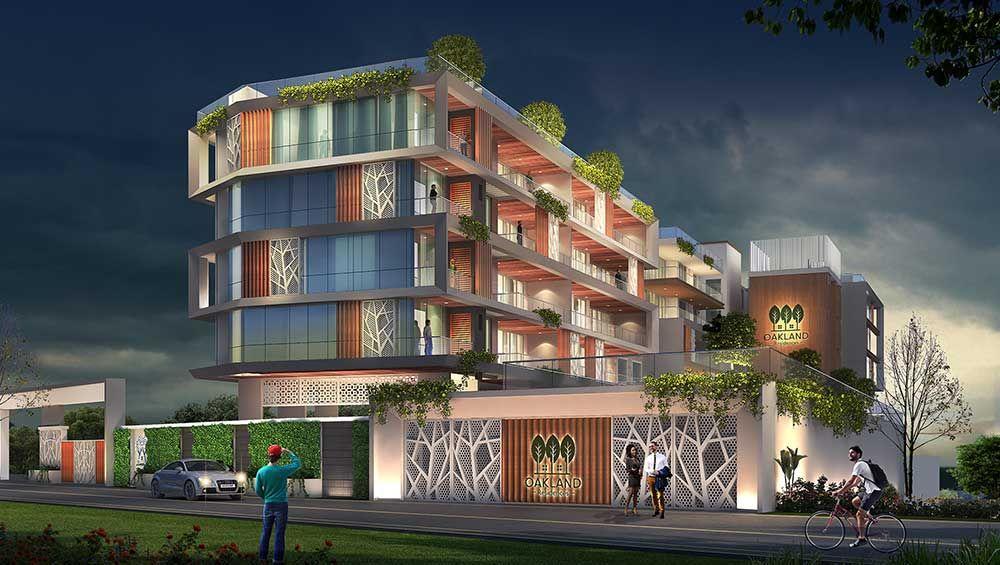Real Estate Market Forecast: What to Expect in 2025
By examining these factors and their anticipated impact on Kenya's upscale property market, prospective investors and agents can gain valuable insights to help guide their strategies.

Global Economic Trends Shaping Luxury Real Estate
Economic growth patterns, inflation rates, and interest policies are central to global luxury real estate trends. While some markets have rebounded from the recent economic downturns, a looming possibility of a recession in 2025 has tempered enthusiasm. High interest rates, notably in major real estate markets like the U.S. and Europe, have affected borrowing costs and influenced both local and international investments in luxury properties. This trend has led many affluent investors to seek opportunities in emerging markets with comparatively lower rates, such as parts of Africa, including Kenya.
In the luxury segment, resilient demand often withstands broader economic slowdowns. Wealthier buyers are less sensitive to interest rate fluctuations, enabling them to act on prime opportunities as the market corrects itself. This behavior is likely to remain unchanged in 2025, with wealthy investors considering luxury real estate a secure, long-term investment rather than a short-term financial play. According to experts, luxury real estate investors in 2025 will be more cautious but will retain a strong appetite for high-value assets in global hotspots.
Kenya’s Luxury Real Estate Market in Focus
Kenya, particularly Nairobi, has been steadily rising as a luxury real estate destination, attracting local elites and international investors. This market has shown resilience through economic fluctuations, with demand buoyed by Kenya’s expanding middle and upper classes and a growing number of high-net-worth individuals (HNWIs). Upmarket areas in Nairobi, such as Karen, Runda, and Lavington, are hubs for luxury residences, featuring properties with high-end amenities and expansive land — key attractions for affluent buyers seeking space and exclusivity.
The post-pandemic demand for remote workspaces has amplified this trend. Many luxury homes now include designated office spaces, a development particularly appealing in Nairobi, where top-tier properties are becoming status symbols as much as secure investments. As the market grows, we expect Kenya’s upscale real estate to attract more expatriates, multinational executives, and foreign investors who find the country’s economic and political stability appealing.
How Global Economic Trends Impact Kenya’s Luxury Property Market
The global economy influences Kenya’s real estate market in multiple ways. High interest rates in the West have increased the appeal of emerging markets with lower borrowing costs, and Kenya is well-positioned to capitalize on this trend in 2025. Additionally, the U.S. dollar’s recent strength has created advantageous currency exchange rates for foreign buyers in Kenya, allowing international investors to acquire more value for their investments.
While these trends create opportunities, Kenya’s luxury real estate sector is also sensitive to broader financial pressures, such as inflation and political stability. Property developers and investors must remain mindful of both domestic and global financial shifts. However, the luxury segment in Kenya tends to fare better than other tiers during market slowdowns, thanks to a clientele less affected by economic fluctuations.
Technological Integration and Sustainability in Luxury Real Estate
Another force driving luxury real estate in Kenya and globally is the integration of smart technologies and sustainable design. High-end buyers are increasingly interested in homes equipped with energy-efficient features, smart home systems, and sustainable materials. Luxury properties in Kenya have begun to incorporate solar power, rainwater harvesting, and eco-friendly building materials, responding to a global trend towards sustainable and self-sufficient living. In the future, developers are expected to integrate more advanced automation and energy solutions to meet the demands of environmentally conscious buyers.
These tech-driven upgrades don’t only add value to properties but are also reflective of the lifestyle preferences of the affluent clientele. As technology becomes integral to luxury real estate, Kenya's developers have an opportunity to align with global standards and enhance the appeal of properties by incorporating these desirable features.
Projected Growth Areas and Key Takeaways
Kenya’s luxury real estate market in 2025 is projected to continue its growth trajectory, buoyed by rising demand among HNWIs and a favorable position within the broader African market. Here are some of the key takeaways and predictions:
- Growing Demand in Nairobi’s Prime Areas: Areas like Westlands, Kilimani, and Karen are expected to remain hotspots for high-end properties. Demand for exclusive, spacious homes with amenities designed for modern lifestyles is likely to increase.
- Currency and Interest Rate Influences: Favorable exchange rates for the U.S. dollar may further attract foreign investors, especially as they look for markets with stable returns amid global economic uncertainty.
- Sustainability as a Selling Point: Incorporating green technologies and sustainable features will become a significant differentiator, appealing to environmentally-conscious investors and high-net-worth buyers.
- Smart Home Technology Adoption: Kenyan luxury properties that adopt smart home features and automation will appeal to tech-savvy buyers, aligning the market with global luxury trends.
Kenya’s luxury real estate market in 2025 is likely to see a blend of traditional factors like location and space alongside emerging trends such as tech integration and sustainable design. The influence of global economic trends, especially rising interest rates and currency valuations, will shape investor behavior and property values. With careful planning and adaptability, stakeholders in Kenya’s luxury property sector can navigate these trends successfully, ensuring that Kenya remains a key player in the global luxury real estate market.
Sources:
- World Economic Forum on global property market dynamics and economic impact.
- Norada Real Estate on global real estate trends and technological influences in 2025.
- Insight from Kenyan real estate data on local luxury property preferences.
News insight
 Nov 11, 2024
Nov 11, 2024
The Role of Expatriates in Driving Demand for Luxury Homes in Kenya
Kenya’s luxury real estate sector has experienced remarkable growth in recent years, with expatriate...
 Nov 11, 2024
Nov 11, 2024
Nairobi’s Luxury Real Estate Boom: Key Trends for 2024/2025
In recent years, Nairobi's luxury real estate market has grown rapidly, driven by a blend of local a...
 Aug 23, 2024
Aug 23, 2024
Unlocking the Secrets of Land Ownership in Kenya: A Guide to Title Deeds
In Kenya, a title deed is a legal document that serves as proof of ownership for a piece of land. It...

